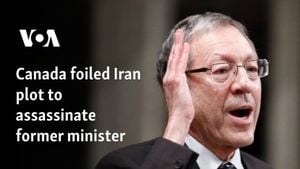Across Canada, nearly 55,000 postal workers have been walking the picket lines, entering the fifth day of their strike over wages and working conditions. The decision to strike came amid frustrations with superiors as staff demanded pay raises and improved job security. The work stoppage, which began on November 15, has led to significant disruptions, halting all mail and parcel deliveries just as the busy holiday shopping season heats up.
The Canadian Union of Postal Workers (CUPW) has maintained from the start of this strike that their demands for improved compensation are more than fair. They are calling for wage increases amounting to 24 percent over four years, significantly higher than the 11.5 percent Canada Post has offered. Other pressing issues on the table include job security, benefits, and working conditions.
A spokesperson for Canada Post, Jon Hamilton, acknowledged the challenges posed by the strike. "A national strike of any length will impact mail service to Canadians well after the strike activity ends," he emphasized. The postal service has already witnessed customers abandoning them for private parcel companies like Amazon and UPS, exacerbated by the more than C$3 billion loss the corporation has faced since 2016.
The negotiations hit another snag, but progress has been noted, attributed largely to the involvement of Peter Simpson, the federal mediator brought on to facilitate discussions. Speaking on behalf of the union, CUPW president Jan Simpson expressed cautious optimism, stating, "After 12 months of discussions, the employer finally began to move on the pressing issues. Resolving these issues could pave the way to agreements." Yet, she admitted, there is still “a lot of ground” to cover before any resolution could be reached.
Meanwhile, the disruptions caused by the strike are being felt across various sectors. With postal services halted, community leaders have sounded the alarm bell about the potential delays for medication and other urgent mail items, particularly concerning the residents of isolated areas. Many northern municipalities have urged residents to seek alternative payment options for bills due to the freezing of mail deliveries.
During the negotiations, the union also raised concerns about working conditions, especially for rural and suburban mail carriers. They outlined their expectations include fair treatment and reasonable workloads during peak periods. The CUPW is also asking for paid sick days, improved disability payouts, and corporate vehicles for mail carriers.
While the workers are currently fighting for what they believe they rightly deserve, CUPW reminds the public and the government of their historical ties to the community, emphasizing their long-held commitment to serving the Canadian populace. Despite the frustrations presently being aired on both sides, the hope remains for a resolution before more significant impact on Canadians is felt.
Experts note the importance of ensuring postal workers receive fair compensation as our reliance on mail continues to rise alongside modern online shopping demands. The holiday season is particularly significant for postal workers, as it traditionally brings increased volumes of packages and letters.
Should the negotiations remain stagnant and the strike persists, Canada Post has prepared contingencies for delivering certain government-related items. They have established agreements to facilitate the distribution of government checks and to maintain the safety of live animals by organizing volunteer service days, signaling the seriousness of their commitments during the work stoppage.
With roughly 30 postal workers located within the Northwest Territories—including approximately 25 operating out of Yellowknife—local service disruptions are expected to prompt ever more residents to seek alternatives. Areas relying on postal services for mundane yet important functions face continuous challenges as discussions are planned and avoided alike.
Negotiations will continue this week, with both sides preparing for the possibility of lengthy discussions. During this time, CUPW remains adamant about its stance, arguing for fair treatment and expectations from the publicly owned postal service, stating, "Our demands are reasonable: fair wages and safe working conditions, the right to retire with dignity, and the expansion of services at the public post office." The workers are standing firm on their beliefs, hoping those on the other side of the negotiations will heed their call before it becomes untenable for Canadians reliant on their services.



